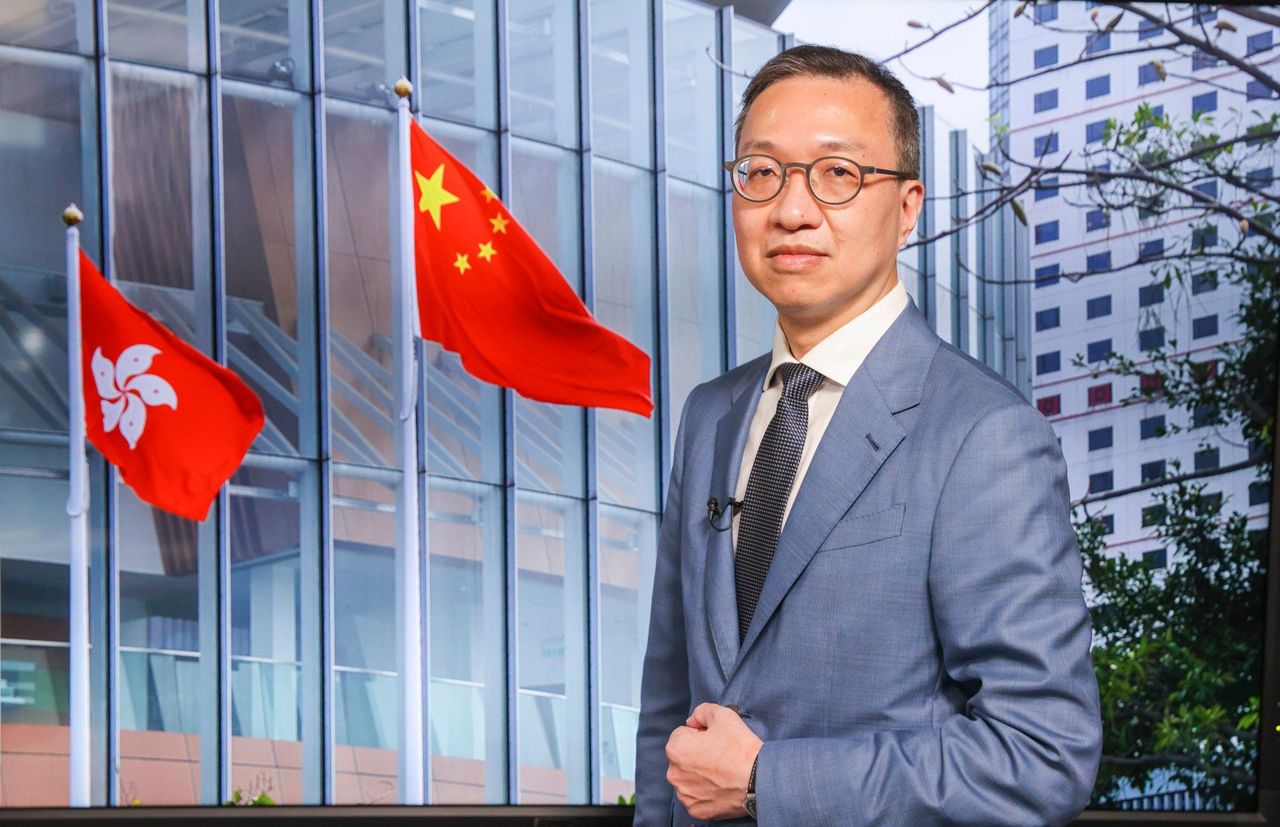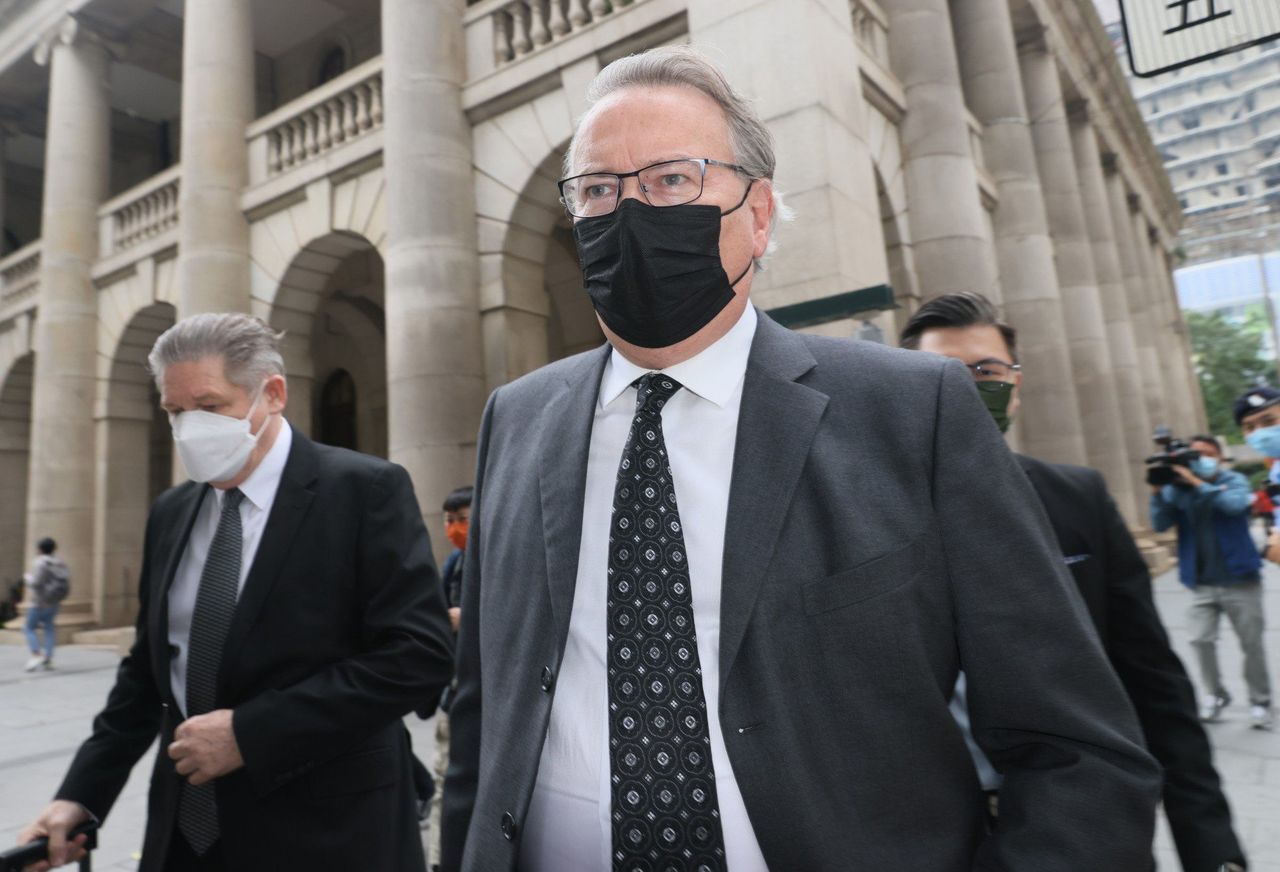Hong Kong News

Hong Kong leader won’t explain if foreign lawyers barred from state security trials
Hong Kong’s leader will refrain from explaining his decision to bar any overseas lawyers from national security trials under a new vetting system, as doing so could pose a risk to the state, the justice minister has revealed.
Secretary for Justice Paul Lam Ting-kwok on Saturday said that “fundamentally” overseas lawyers should not take part in national security cases, but added no outright ban would be adopted.
“The chief executive will not give out reasons for rejecting overseas lawyers in specific cases. He will only consider whether the participation of that overseas lawyer will be detrimental to national security,” he said. “His reasoning may involve some sensitive information and making it public would be inappropriate as the disclosure of the reasons will pose national security risks.”
 Secretary for Justice Paul Lam has denied the government will adopt a
blanket ban on foreign layers taking part in national security cases.
Secretary for Justice Paul Lam has denied the government will adopt a
blanket ban on foreign layers taking part in national security cases.
The minister argued that allowing foreign lawyers who were not fully qualified in the city to represent national security defendants was already an “exceptional situation.”
“Fundamentally it is inappropriate for these lawyers to take part in national security cases,” he said.
The vetting system was proposed following a battle between media tycoon Jimmy Lai Chee-ying and prosecutors over whether King’s Counsel Timothy Owen, based in Britain, could represent him at his collusion trial. When the top court sided with Lai, the government turned to the country’s top legislative body, the National People’s Congress Standing Committee, for an interpretation of the national security law.
The standing committee ruled the courts needed the chief executive’s approval to allow the lawyers to take part in sensitive security cases.
In February, the Department of Justice proposed amending the Legal Practitioners Ordinance giving the city leader the power to bar overseas lawyers in such cases if their participation was deemed “contrary to the interests of national security”.
But Lam denied the government would adopt a blanket ban.
“This is not a complete ban,” he said. “We now have procedures and ways to let overseas lawyers convince the chief executive that they are exceptional cases. We are giving them a chance to strive to participate in relevant cases. The lawyers have to prove that their participation won’t pose risks to national security.”
Lam had earlier said the proposed changes would not be retrospective, although he did not rule out resorting to other means to block applications already made.
 The vetting system was proposed following a battle between media tycoon
Jimmy Lai and prosecutors over whether King’s Counsel Timothy Owen could
represent him at his collusion trial.
The vetting system was proposed following a battle between media tycoon
Jimmy Lai and prosecutors over whether King’s Counsel Timothy Owen could
represent him at his collusion trial.
Constitutional law expert Professor Albert Chen Hung-yee from the University of Hong Kong said that given the proposed changes were based on the government’s view that the participation of foreign barristers in such sensitive cases was “in principle contrary to national security”, the government would not need to provide a reason for rejections.
He said the government could explain the principle behind the new approach when the bill was presented to the legislature.
Last month, the Department of Justice introduced two more changes to the law, on top of the amendments proposed in February. Under the latest plan, an overseas lawyer would need to obtain a “Notice of Permission to Proceed” issued by the city leader before filing for ad hoc admission to the court.
The court should then seek a certificate from the chief executive before granting a foreign lawyer admission, and the court’s decisions would also be subject to a review led by the city leader.
Both rounds of the chief executive’s decisions would be final and not subject to legal challenges, including judicial reviews.











